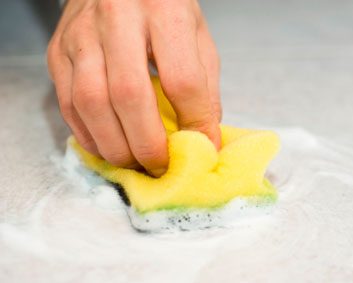Are antibacterial sponges healthier than regular?
Your kitchen sponge is the perfect breeding ground for harmful bacteria. Here’s how to keep yours as germ-free as possible

Source: Best Health Magazine, May 2012
You may have noticed some sponges labelled ‘antimicrobial’ or ‘antibacterial.’ Does that mean they will kill germs? We asked Dr. Donald Low, chief microbiologist at Mount Sinai Hospital in Toronto and spokesperson for the Health and Hygiene Council of Canada.
‘We don’t know how effective the antimicrobials in these sponges may be,’ says Low. ‘Some bacteria are resistant even to the most powerful drugs. [The sponges] may not stop the growth of illness-causing bacteria like salmonella.’
Indeed, when you read these products’ labels, they don’t claim to do that. They do claim to stop the growth of odour-causing bacteria.
Any damp sponge is the perfect environment for bacteria to multiply. In just 20 minutes, bacteria such as salmonella can multiply to an amount that can make you sick.
‘The most important thing to do is to regularly clean any sponges you use and let them dry between uses,’ says Low. Toss them in the dishwasher, or microwave them for a minute when slightly damp. ‘Both methods raise the temperature of the sponge high enough to kill bacteria.’
This article was originally titled "The truth about…Sponges" in the May 2012 issue of Best Health. Subscribe today to get the full Best Health experience’and never miss an issue!




